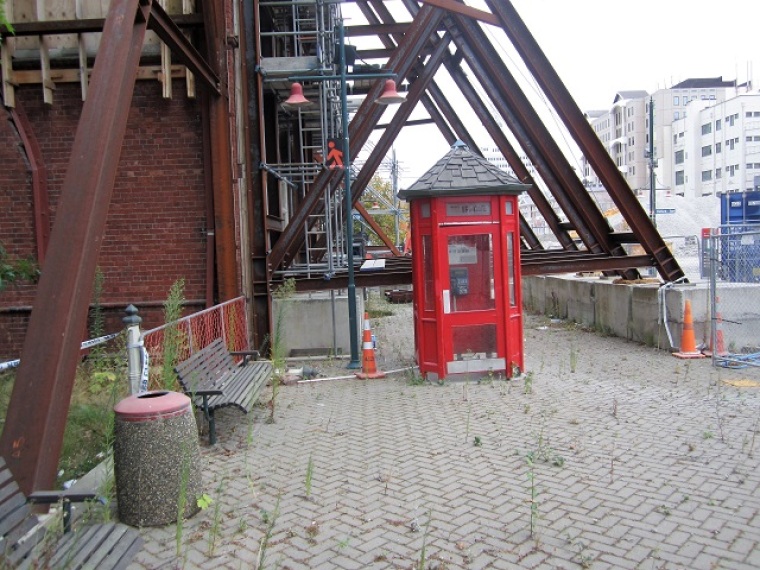
We need a balanced social welfare system, with good checks on those who abuse it. A system where those who need and ‘deserve’ assistance are justly supported. What we might qualify as the "deserving poor" and the "undeserving poor" are useful categories to fit social welfare recipients into.
Some people want to work but are unable, either due to disability, mental-illness, or simply lack of success in obtaining work, despite diligent effort. I would classify these groups as the undeserving poor. Social welfare exists for this group.
The second category are people who are unwilling to work, but not for any reason that would fall into the aforementioned situations. Such people do not deserve assistance because they have no intention of contributing to the system they are exploiting.
Such people need to face consequences of their indolence and lack of commitment to finding employment. We should not reward this group by funding them.
The safety net exists only because the employed contribute towards it, to insure themselves against being destitute given the potential occurance of financial hardship. And as a rule, anyone who has the privilege of social welfare has a social responsibility to contribute towards it through their labour.
Some people feel no shame for abusing the system. On the contrary many even gloats about it. They see it as an entitlement by virtue of being born here, or as a trophy for crossing a border. Some economic migrants fleeing their home countries often have no plan on working but expect their hosts to pay for their living expenses forever. Some have racked up 20 years on welfare being able-bodied and psychologically sound. If everyone was to take this attitude, society would collapse on itself.
Public disaproval is not usually expressed as social stigma anymore. We have been told that criticising those who exploit the system is tantamount to being against it and wanting to disadvantage needy people or hungry children. We are told society is responsible for the predicament of the deserving poor, not so much as the individuals themselves.
But overall if society was to penalise those who exploit welfare, or even just put them to work for the government we would be improving the general condition for everyone, both-tax payers and tax-takers. Even if only to provide the unemployed some dignity, and personal experience necessary to understand how value and wealth is generated.
Some on the Left
Some on the left have a sense that work should be optional, that those who are not committed to finding work shouldn't be judged by the public, because basic living expenses should be free, considering the vast wealth some have obtained. Some on the left believe the difficult predicament of our struggle for survival and subsistence is an unfair plight, and we can resolve this with wealth redistribution.
The easy road however never leads to life satisfaction, which is why the unemployed are also often miserable. It is a natural feeling most people have when they are dependent upon the state to survive. They are deprived of autonomy, a sense of progression, vision and dignity. This is probably why the left feels sorry for the welfare class, but negative feelings should spur the unemployed into action. The deserving poor will suppress and bury these moral proddings and negative feelings, showing indifference to their burden on society and associated responsibilities.
The difference with the deserving poor, unlike those with disabilities for example, is that their outcomes are self-inflicted due to their choices, or indecisions. Sometimes the deserving poor have difficult backgrounds, or addictions, which make it exceedingly difficult to step up and participate in work life and hold a job. But so do the millions of people living in slums accross the world who would earnesty take up the opportunities we have.
Grey areas
There is definitely a grey area people might fall into, between deserving and undeserving. Drug abusers for instance, who made bad choices and can't seem to kick the habit, probably deserve help, but even then facing the reality of their decision, by being homeless, might be the only effective wakeup call for some people.
Some addicts would comfortably maintain their addiction should the tax payer fund it. They would remain unemployable and be a net drain on the system. We shouldn't shield people from the consequences of their decisions with the cotton wool of free money, when they really need to come face to face with the consequences, in order to motivate change. In my view, let the deserving poor, stay poor, yet, it goes without saying, we need to cover the genuine.


Amos Sale is a Press Service International young writer from Auckland, New Zealand

Amos Sale is an evangelical conservative who considers himself a defender of traditional Christian values, liberal democracy and the unprecedented freedom and liberty established and defended by our forebears—which is being eroded.
Amos Sale previous articles may be viewed at www.pressserviceinternational.org/amos-sale.html